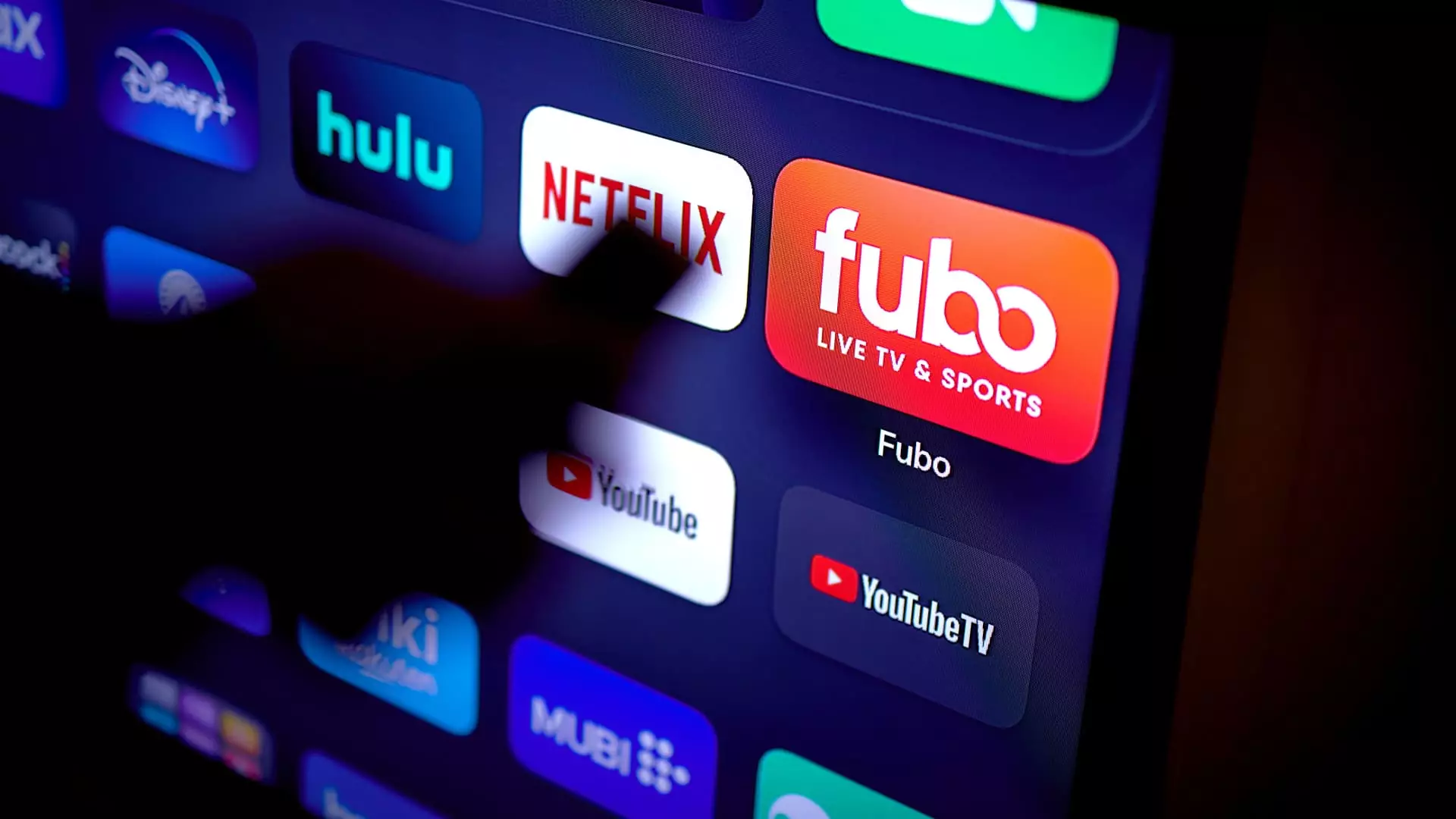The digital streaming landscape continues to evolve at an unprecedented pace. The recent announcement that Disney will merge its Hulu+ Live TV service with the streaming platform Fubo marks a significant shift in how consumers will access their favorite content. This partnership hints at broader changes within the industry, especially as traditional cable TV faces increasing competition from streaming services.
Disney’s agreement to acquire a 70% stake in Fubo reflects a strategic move in a saturated market. With 6.2 million combined subscribers, the merger signifies the power that lies in consolidation. Both Hulu+ Live TV and Fubo offer unique value propositions: Hulu provides a diverse array of entertainment content, while Fubo has carved a niche by focusing on sports and news programming. By merging these two platforms, Disney aims to create a more robust offering for consumers, while retaining the option to access both services independently.
Fubo CEO David Gandler has emphasized the potential benefits for users, asserting that the integration enhances user retention. This perspective recognizes that in today’s market, where consumers are inundated with choices, maintaining subscriber interest often hinges on the user experience. However, the rhetoric surrounding “providing consumers with choice” may mask the realpolitik of the streaming industry’s competitive dynamics.
The financial implications of this merger are noteworthy. Gandler believes that the newly combined entity will achieve immediate cash flow positivity, positioning Fubo as a dominant player within the streaming sphere. This optimism is reflected in the 190% surge in Fubo’s stock value following the announcement, which underscores investor confidence in the new strategic direction.
However, stakeholders must remain cautious, especially since this new alliance may trigger a phase of aggressive competition. While Fubo has focused on regional sports, the competition landscape includes prominent players like YouTube TV. The market will likely scrutinize the long-term sustainability of such high valuations, particularly in light of the growing trend of bundling services and the ongoing quest for content exclusivity.
Interestingly, this merger also resolves prior litigation between Fubo and a consortium of industry giants, including Disney, Warner Bros. Discovery (WBD), and Fox. Fubo’s lawsuit against these companies over their sports streaming service, Venu, highlights the cutthroat nature of the streaming marketplace. The initial block of Venu’s launch speaks volumes about antitrust concerns that loom large over the industry, especially as media consolidation accelerates.
Settling the litigation with a $220 million cash payment to Fubo not only clears the legal air but also demonstrates the necessity for legacy media companies to adapt to a shifting landscape. The resolution signals a willingness among major players to find common ground, which may also democratize content access for consumers. By integrating a fresh sports and broadcasting service into the mix, the new entity is poised to cater to a wider range of viewing preferences.
As the streaming landscape continues to evolve, this merger of Disney and Fubo underscores a fundamental truth: the industry is in the throes of transformation. Disney, with its extensive portfolio that includes ESPN and Hulu, is rapidly adapting to consumer demands for on-demand, competitive programming. Meanwhile, Fubo’s commitment to exciting live sports content remains a key differentiator.
Although Hulu, with its rich catalog of original shows, will remain separate from this merger, the combined force of Disney’s ownership of Fubo and Hulu+ Live TV may present unprecedented opportunities for content cross-promotion and package deals. The blending of two distinct offerings could set a precedent for future partnerships in the streaming arena, reinforcing the notion that consumer choice is driven not solely by content, but by strategic service management.
As the dust settles from this landmark merger, industry observers should keep a close eye on how it reshapes content distribution trends and affects consumer behavior in the long run. The merging of services like Hulu+ Live TV and Fubo could serve as a blueprint in developing strategies to enhance user engagement while establishing a sustainable business model in a world where competition is fiercer than ever.


Leave a Reply